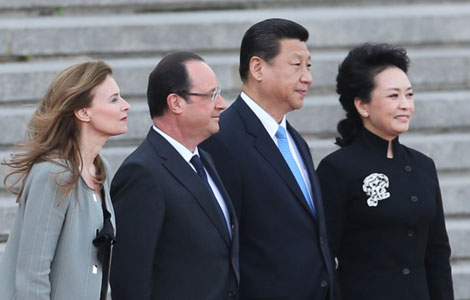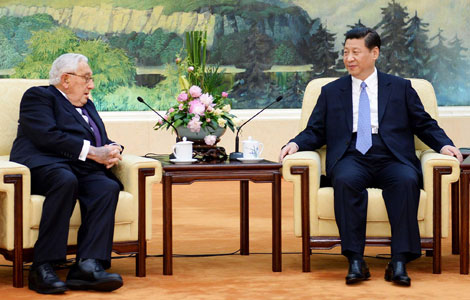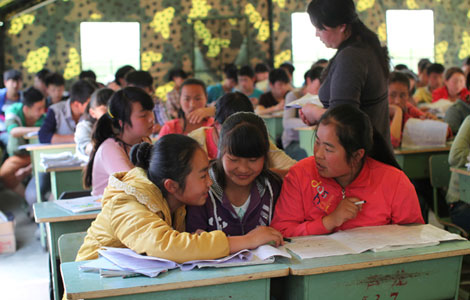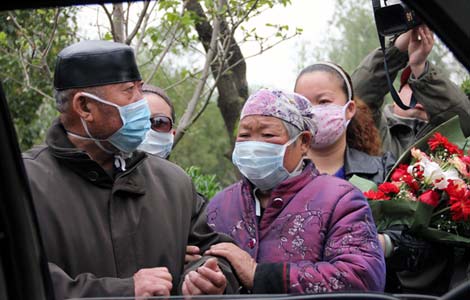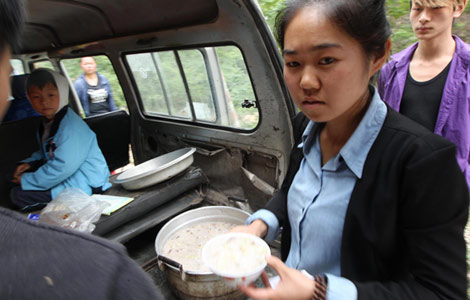Urbanization to fuel China's economic growth
Updated: 2013-04-26 10:01
(Xinhua)
|
||||||||
HONG KONG - China's economy will expand at a relatively fast growth rate over the next few years as the ongoing urbanization will unleash enormous consumption and investment demand and create numerous job opportunities, a senior analyst said Thursday.
China's annual economic growth rate will remain at 7 percent before 2020, putting the country on course to meet its official target of doubling its 2010 GDP by 2020, Li Wei, head of the Development Research Center of the State Council, said at the third Economic and Financial Forum for Mainland, Hong Kong and Taiwan.
"Though faced with a series of challenges including an aging population, rising labor costs and looming financial risks, China still boasts huge growth potential as consumer demand will expand steadily with advancing urbanization and increasing residents' incomes," he said.
A growing high-quality labor market and steady investment in infrastructure projects will also provide effective support to economic growth, Li added.
|
 |
China's urban population has accounted for 52.57 percent of the country's total population by the end of 2012, up 1.3 percentage points from a year earlier, according to data from the National Bureau of Statistics.
The country's urbanization rate still lagged far behind developed nations, like 82 percent in US and 91.3 percent in Japan. China plans to achieve a 67 percent rate by 2030, which means the country needs to shift 280 million people to cities within two decades.
Liu Yiju, adjunct professor at the National Taiwan University, said "with the process of urbanization, a new middle class will emerge, creating great consumer demand and bringing opportunities for global companies."
She said companies should capitalize on the opportunities and make reasonably-priced products to meet the demand of the new middle class.
Experts at the forum also called for reforms in the country's rigid household registration, or hukou, system to help turn millions of rural workers from savers into consumers.
The hukou system has split China's population along urban-rural lines. In reality, migrant workers have come to represent around 30 percent of China's urban population, but the lack of permanent urban status denies them many urban welfare and services.
Last month, Chinese Premier Li Keqiang pledged to advance urbanization in a steady, active and prudent way. "What we stress is a new type of urbanization that puts the people in the heart. It needs the support of job creation and provision of services," he said.
Experts also underlined the importance of shifting the economic growth model from relying on State-led investment and exports to domestic consumption in order to ensure healthy and sustainable economic growth.
Themed "New Economic Opportunities for Greater China", the forum aimed at promoting economic and financial ties among the Chinese mainland, Hong Kong and Taiwan, and providing an efficient platform for representatives from the three regions to exchange ideas.
- Urban residents to exceed 1b in 2030
- Are cities expanding too fast and too soon?
- Private capital cited as 'desirable' in urbanization
- Income gap widening in China: survey
- Premier underlines modern agriculture, scale farming
- China's urbanization presents opportunities: Caterpillar
- No timetable yet for rollout of urbanization process: NDRC
Most Viewed
Editor's Picks
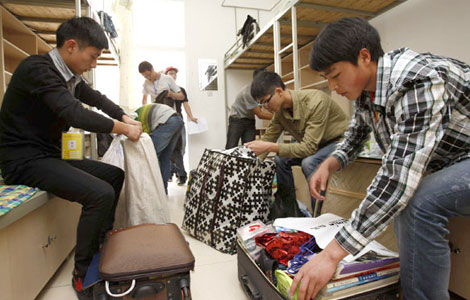
|

|

|

|

|

|
Today's Top News
Phone bookings for taxis in Beijing
Chinese consumers push US exports higher
Seoul delivers ultimatum to DPRK
Boston bombing suspects intended to attack NYC
No let up in home price rises
Bird-watchers undaunted by H7N9 virus
Onset of flood season adds to quake zone risks
Vice-president Li meets US diplomat
US Weekly

|

|
